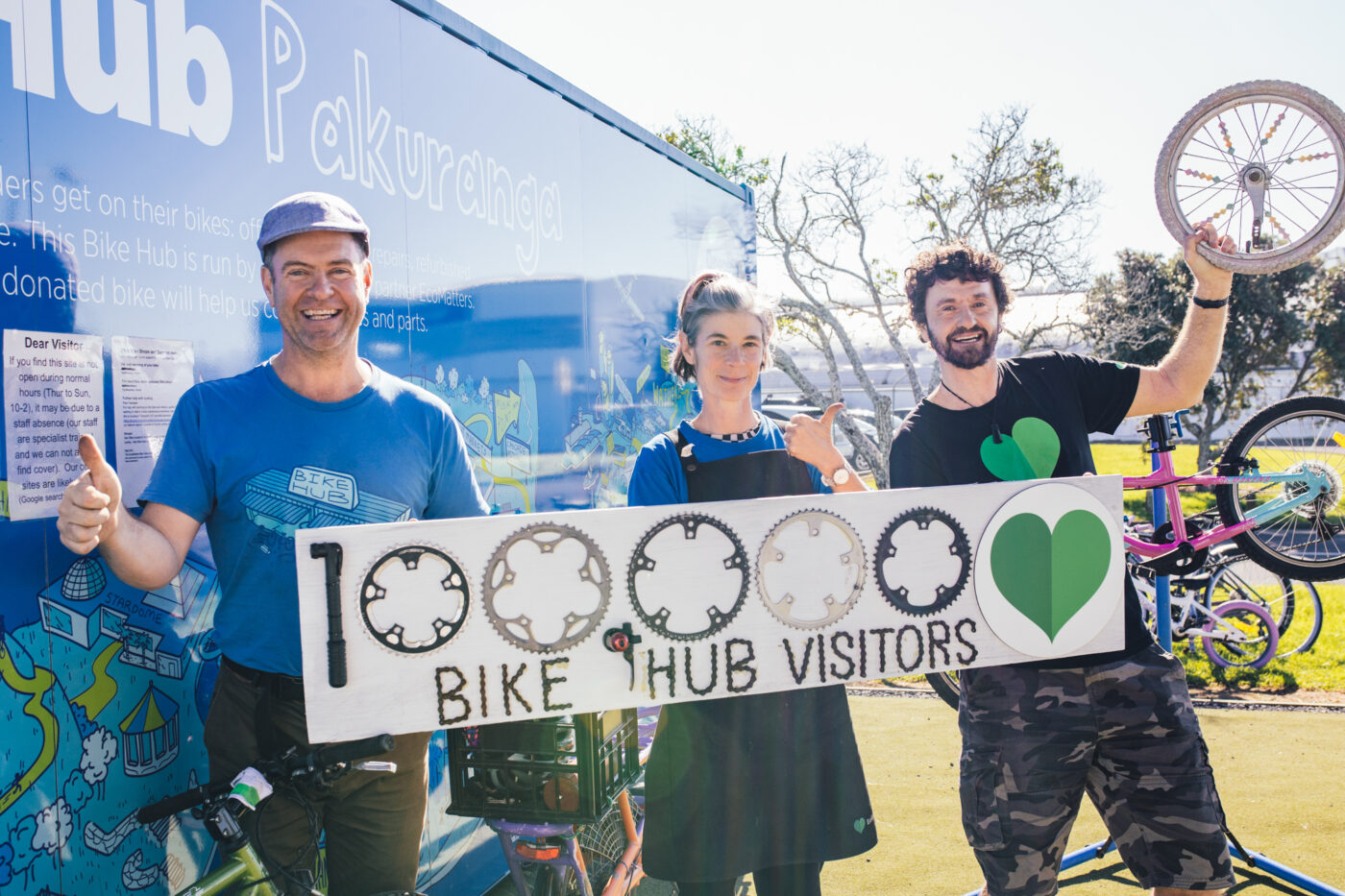
An Auckland charity that started its first Bike Hub in a humble container eight years ago has clocked up 100,000 visitors across the nine hubs it now operates.
It’s largely thanks to Aucklanders showing up week after week to buy or donate second hand bicycles, or to learn how to maintain the bikes they already have, says EcoMatters Environment Trust’s bike manager Brent Bielby.
Supporters in east Auckland “can be proud” of the numbers going through the Pakuranga Bike Hub – one of the most recent additions, he says.
In the 2024-2025 financial year, EcoMatters’ nine hubs saw more than 35,000 visitors, fixed 12,267 bikes with those visitors, and sold 2158 bikes that were donated for refurbishment and resale.
In Pakuranga, the team had 3261 visitors, fixed 1267 bikes, and sold 285 donated and refurbished bikes.
Bielby says the achievements have also been made possible with the backing of a wide range of funders who saw the potential in EcoMatters’ original concept, plus the commitment and passion of staff and volunteers.
“We’re blown away by the support we’ve had from Tāmaki Makaurau, which truly shows Aucklanders want access to this type of community service.
“It’s all about making it easy for people to get on a bike.”
EcoMatters chief executive Carla Gee says reaching this overall milestone shows the demand is there, not just for individuals but for whole families.
“I’m particularly proud this is a space for the whole whānau to enjoy.
“Making cycling accessible and affordable for more people of all ages is good for our community and our health.
“It’s also good for the health of the environment, which is the basis on which EcoMatters operates.”
Gee says one of its key focuses is making cycling accessible for short journeys that people often default to driving for.
“We know carbon emissions can be significantly reduced by taking this ‘everyday’ approach to using a bike.”
Reaching the 100,000 mark adds weight to cycling statistics such as Auckland Transport’s monthly cycling monitor tool, showing a 4.5 per cent year-on-year increase in cycling movements around the region, Bielby says.
But he believes the influence of the hubs far exceeds 100,000 because those “newly empowered visitors” who visit them go home and share their skills with whānau and friends.
“Cycling counters and other tools are great, but our hubs give us a much broader, deeper picture of cycling in Tāmaki Makaurau,” Bielby says.
“Our figures indicate there are more people interested in cycling than is reported in a range of media, and this is so encouraging.”









